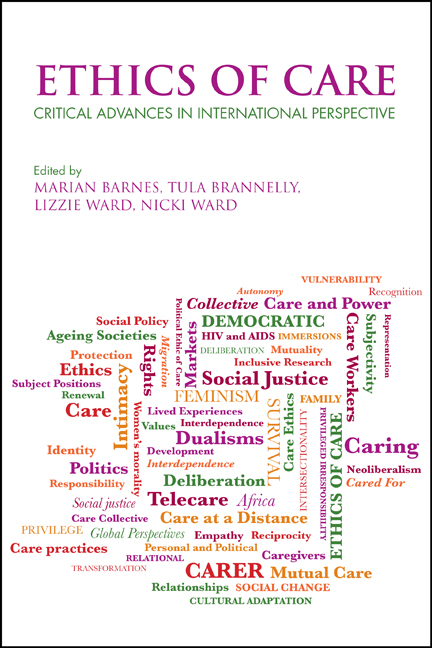Ten - Paradoxical constructions in Danish elderly care
Published online by Cambridge University Press: 08 March 2022
Summary
Introduction
Transformations are taking place in Danish elder care that have consequences for both older citizens and care workers. These transformations are connected to economic concerns and to scientifically and ideologically based changes in how older people are perceived, and they are shaping the support offered to older people by the welfare state. This chapter focuses on the consequences of different philosophical conceptualisations of human beings; specifically, on the ways in which older people are viewed and how this influences ideas both about the care they may need and about how professionals should behave towards old people in need of support. This interest reflects a general concern about how neoliberalism, with its conception of human beings as rational, independent, free-choosing customers, changes the role of the state and, through ‘technologies of the self ‘, moves caring responsibilities away from the community and onto the individual. It is argued that the discourse of active ageing changes the concept and practice of care when it is implemented as policy for elder care. Neoliberal conceptualisations of what it is to be human question fundamental principles of the Nordic welfare state model, which has been characterised by a mutual responsibility for all citizens based on universal welfare principles and a high degree of economic redistribution. Drawing on empirical material from a study of activity centres for older citizens, the chapter shows how macro-level policies and organisational framing pervade norms, values and practice on a micro level.
Older people who are too frail, ill or lonely to be on their own at home during the day time can attend activity centres either voluntarily or by municipal referral. The empirical material for this chapter is drawn from an evaluation of a learning project for care workers in activity centres and consists of interviews with care workers, observations of daily situations in the centres, and notes of the researcher's own thoughts and emotions in connection to the observations. The care workers in this study were critical of neoliberal notions of human beings, and expressed feelings of infringement when they felt their experience based knowledge from at work were being ignored. And, as the care workers explain and the observations illustrate, the lives of the older people in question are not always in harmony with the idea of the resourceful, active and independent elder that is presented in the new image.
- Type
- Chapter
- Information
- Ethics of CareCritical Advances in International Perspective, pp. 125 - 138Publisher: Bristol University PressPrint publication year: 2015



